Search Definitions
Browse Content (p. 155)
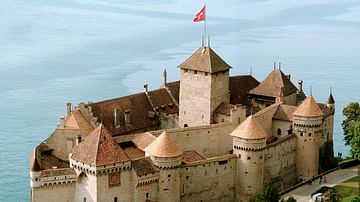
Definition
Chillon Castle
Chillon Castle (French: Château de Chillon) is a medieval fortress celebrated for its beauty and is widely regarded as one of the best-preserved medieval castles in Europe. Situated in Canton Vaud, Switzerland and only 3 km (2 miles) from...

Definition
Aphrodite
Aphrodite was the ancient Greek goddess of love, beauty, desire, and all aspects of sexuality. She could entice both gods and men into illicit affairs with her beauty and whispered sweet nothings. Aphrodite was born near Cyprus from the severed...
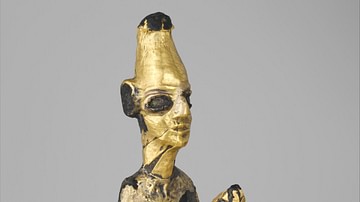
Definition
Canaan
Canaan was the name of a large and prosperous ancient country (at times independent, at others a tributary to Egypt) located in the Levant region of present-day Lebanon, Syria, Jordan, and Israel. It was also known as Phoenicia. The origin...
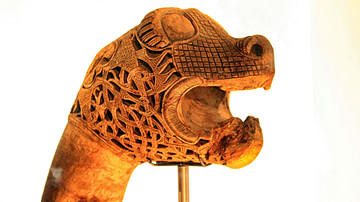
Definition
Viking Art
Art made by Scandinavians during the Viking Age (c. 790-1100 CE) mostly encompassed the decoration of functional objects made of wood, metal, stone, textile and other materials with relief carvings, engravings of animal shapes and abstract...

Definition
Council of Clermont
The Council of Clermont in central France was held in November 1095 and witnessed Pope Urban II's (r. 1088-1099) historic call for the First Crusade (1095-1102) to capture Jerusalem for Christendom from its Muslim occupiers. The Pope's speech...
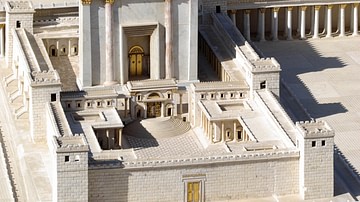
Definition
Yahweh
Yahweh is the name of the state god of the ancient Kingdom of Israel and, later, the Kingdom of Judah. His name is composed of four Hebrew consonants (YHWH, known as the Tetragrammaton) which the prophet Moses is said to have revealed to...

Definition
Albigensian Crusade
The Albigensian Crusade (aka Cathars' Crusade, 1209-1229 CE), was the first crusade to specifically target heretic Christians - the Cathars of southern France. Not successful in repressing the heresy, the on-off campaigns over two decades...
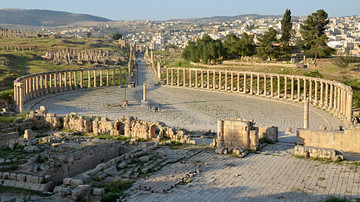
Definition
Jerash
Jerash (aka Gerasa, Gerash or Gerasha) is the capital and the largest city of the Jerash Governorate in Jordan, but in ancient times it was one of the wealthiest and most cosmopolitan cities in the ancient Near East. Settled by humans as...

Definition
Chartres Cathedral
The Notre Dame Cathedral (Cathedral of Our Lady of the Assumption) of Chartres in northern France was built in its current Romanesque and Gothic form between 1190 and 1220. A grander version of earlier cathedrals on the same site, it attracted...

Definition
Sukhothai
Sukhothai or Sukhothai Historical Park was the former capital of the Kingdom of Sukhothai (1248-1438 CE), which was founded by King Si Inthrathit (r. 1238-1270 CE) and was the first in a series of independent polities that would eventually...